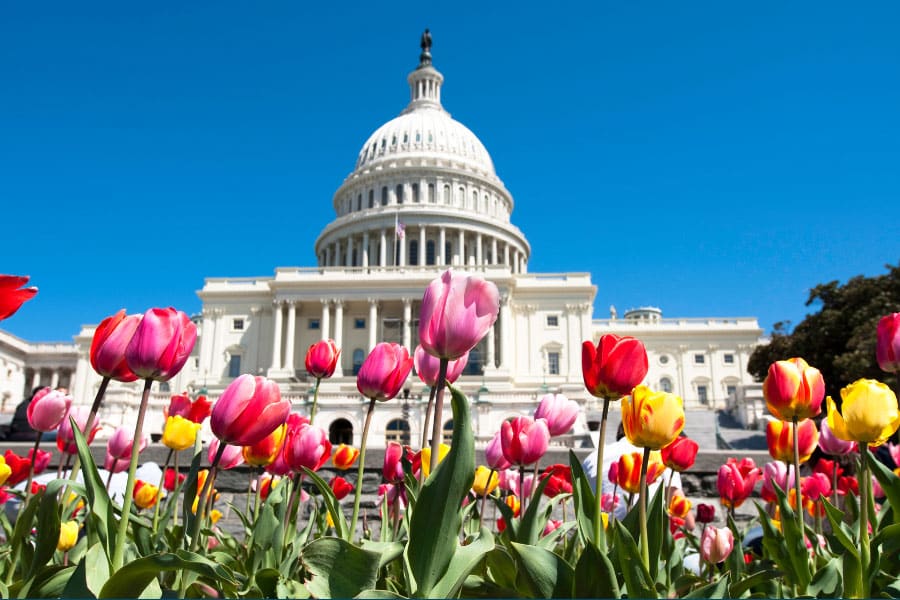Traveling with money safely doesn’t need to be stressful. Carrying more than one payment method and planning ahead can protect your finances and help you enjoy your trip with confidence.
Whether you’re headed overseas, visiting family across the country, or exploring Minnesota’s lakes region, one of the most important parts of your travel plan should be how you manage your money. We’ve seen too many travelers rely on just one payment method just to find themselves in a stressful situation when it’s lost, stolen, or blocked while traveling.
The key to traveling with confidence is to have multiple, secure ways to access your funds. Here’s a look at traveling with money safely and what you can do to make sure you have access to your accounts, no matter what happens on your trip.
Never Travel with Just One Payment Method
It’s easy to assume your debit card will work everywhere, but that’s not always the case. Network outages, fraud alerts, or even a misplaced wallet can cut off your access to funds in seconds. If it’s your only method of payment, you may find yourself scrambling to cover your hotel deposits, meals, or transportation. Carrying more than one form of payment ensures you’ll have a backup if something goes wrong.
Smart Payment Options for Travelers
Here are a few ways the Lake Region Bank team recommends you protect yourself and stay flexible when managing money on the road.
- Debit Card: Great for direct access to your checking account and cash withdrawals. Be sure to notify Lake Region Bank of your travel dates and destinations so your card doesn’t get flagged for suspicious activity.
- Credit Card: Offers fraud protection, travel rewards, and sometimes insurance benefits. A credit card can be a lifesaver for large and unexpected expenses.
- Cash: Always keep a modest amount of cash on hand for small purchases, tips, or emergencies. This is especially helpful in rural areas or other places cards may not be accepted.
- Prepaid Travel Card or Gift Card: These can be loaded with a set amount and used like a debit or credit card without linking directly to your bank account. This protects your main funds in the event your prepaid card is lost or stolen.
Pro Tips for Managing Your Travel Money Safely
In addition to bringing along at least two forms of payment, here are a few more tips to keep your money safe while you travel.
- Store Cards (and Cash) Separately. Keep one card in your wallet and another in a separate, secure location, such as your hotel safe.
- Monitor Your Accounts Regularly. Use the Lake Region Bank mobile app to check transactions and quickly spot any suspicious activity.
- Use ATMs Wisely. Only trust machines in bank lobbies or other trusted locations to reduce risk of skimming devices. Avoid bitcoin ATMs.
- Set Up Alerts. At Lake Region Bank, you can receive real-time notifications on your card activity. This can give you peace of mind while traveling.
Set Up Your Digital Wallet
Using your mobile phone’s digital wallet, such as Apple Pay or Google Wallet, can help you stay connected to your money while you travel. Digital wallets are secure and as safe to use as your physical debit and credit cards. It’s easy to add your Lake Region Bank credit cards and debit cards to your digital wallet. Stop in at one of our branches for help.
Traveling should be exciting, not stressful! By carrying more than one payment method and planning ahead, you can protect your finances and enjoy your trip with confidence.
Whether you’re headed on an international adventure with the Good Neighbor Club or having fun closer to home, a few simple precautions can make all the difference. For more personal banking tips or for assistance opening a new savings or checking account, get in touch with the Lake Region Bank team today.
Traveling with Money Safely FAQs
Why is it risky to travel with only one payment method?
If your debit card is lost, stolen, or blocked, you could lose access to all your funds. Having multiple payment options prevents unnecessary stress and financial trouble.
Should I tell my bank before traveling?
Yes. Informing your bank of your travel plans helps prevent fraud alerts and accidental card blocks while you’re away.
How much cash should I carry when traveling?
Carry enough for small purchases or emergencies, but avoid large amounts for security reasons. Use cards for most major expenses.
What’s a prepaid travel card, and how does it help?
Prepaid travel cards are preloaded with funds and work like debit cards, but they’re not tied to your bank account. They’re ideal for budgeting and minimizing risk if a card is lost or stolen.








